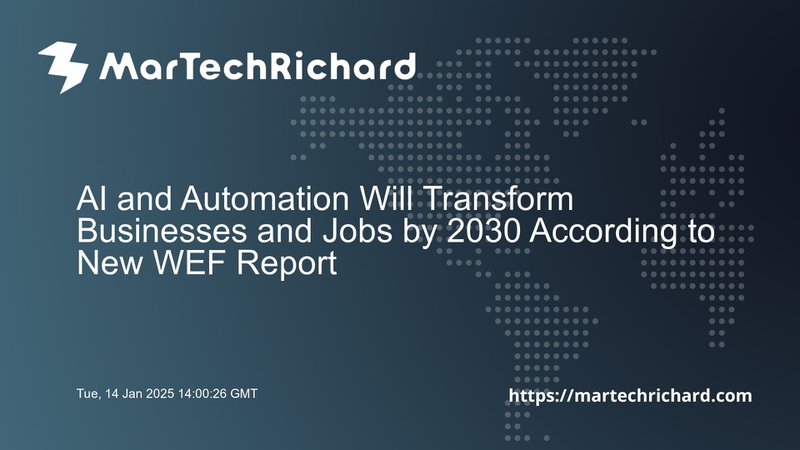
The Impact of AI on Job Creation and Displacement: Insights from the WEF Report
The World Economic Forum's (WEF) Future of Jobs Report 2025 paints a dynamic picture of the future labor market, highlighting both the transformative potential and the challenges posed by artificial intelligence (AI). Here’s a concise summary of the key points:
Job Creation and Displacement
The report forecasts that by 2030, AI and information processing technologies will transform 86% of businesses globally. This transformation is expected to create 170 million new jobs worldwide while displacing 92 million existing roles. This net increase of 78 million jobs represents a significant shift in the global workforce landscape.
Investment in Generative AI
Since the launch of OpenAI's ChatGPT in November 2022, investment in generative AI (Gen AI) has surged nearly eightfold. This financial boost supports not only software development but also the necessary physical infrastructure, such as servers and power plants. The technology industry is at the forefront of adopting AI, while sectors like construction lag behind.
Skills Gap and Upskilling
The report underscores the critical need for upskilling to prepare workforces for the rapid pace of technological change. By 2030, 39% of existing skill sets are expected to become outdated, emphasizing the urgency for continuous education and training. Half of the workforce is already undergoing education to meet these new demands, with 85% of employers planning to prioritize workforce upskilling.
Regional Variations
The impact of robotics and automation varies significantly by region. The five leading countries—China, Japan, the US, the Republic of Korea, and Germany—account for 80% of global robot installations and anticipate significant transformation due to robotics. In contrast, regions like Sub-Saharan Africa and the Middle East and North Africa expect lower impacts from robotics.
Additional Insights and Opinions
Empowerment Through AI
Rather than simply eliminating jobs, AI is becoming a tool for empowerment. It enhances human capabilities by allowing less specialized workers to undertake tasks previously reserved for experts. For instance, roles such as accounting clerks, nurses, and teaching assistants now benefit from AI-powered enhancements that optimize operations and streamline workflows.
Ethical Considerations
The report also highlights ethical considerations regarding the deployment of AI. It warns against complete automation, emphasizing the need to design technologies that complement human work rather than replace it. This approach is crucial for maintaining a balanced relationship between humans and machines and mitigating potential inequalities between countries.
Future Workforce
The future workforce will require a combination of both technological skills and human skills like creative thinking, resilience, flexibility, and agility. Frontline roles such as farmworkers, delivery drivers, and construction workers are poised for significant job growth by 2030. Advances in AI and renewable energy will drive an increase in demand for specialist roles in these fields.
Discussion Questions or Prompts
- How can businesses effectively upskill their workforces to adapt to the rapid pace of technological change?
- What are the ethical implications of relying heavily on AI in various industries? How can we ensure that AI complements human work rather than replacing it?
- What role do you see generative AI playing in shaping the future of work? Will it create more opportunities or exacerbate existing challenges?
Follow Us Now
If you're interested in learning more about how AI can transform your business or need guidance on upskilling your workforce, feel free to contact us via email at [email protected] or reach out to us via LinkedIn message. Don't forget to subscribe to our LinkedIn page and newsletters for the latest insights on martech and AI trends.
Source URL: WEF Report – The Impact of AI Driving 170M New Jobs by 2030
